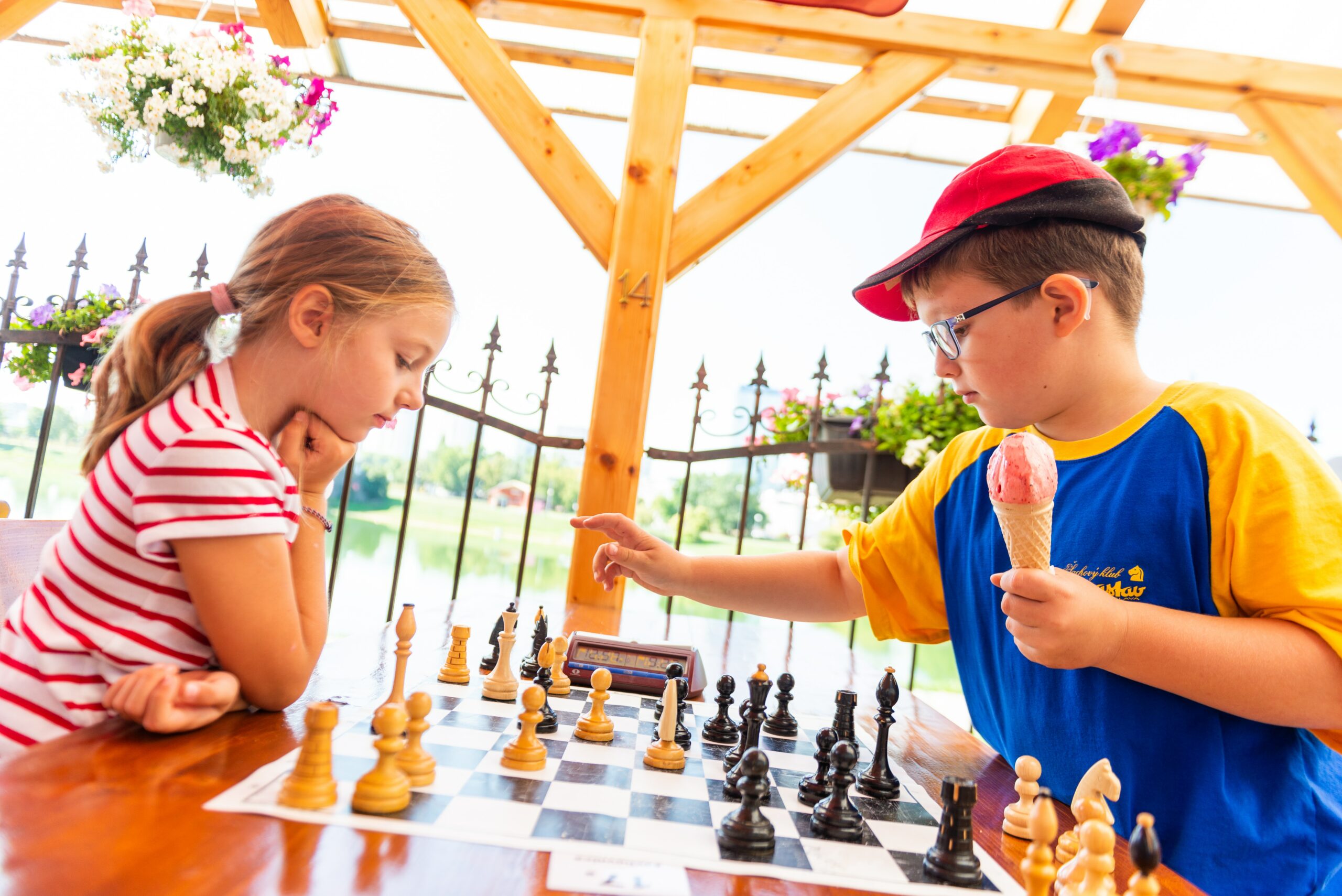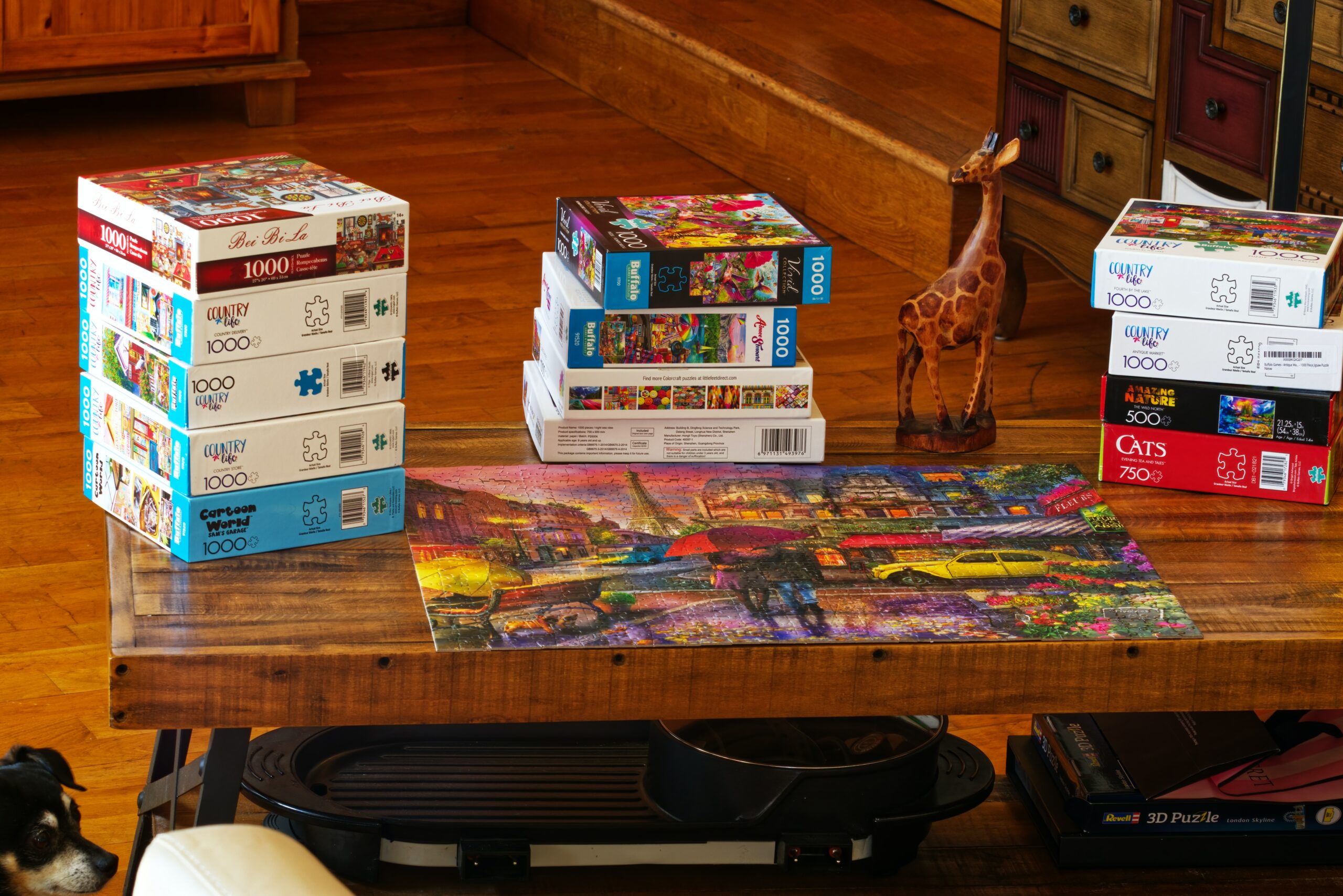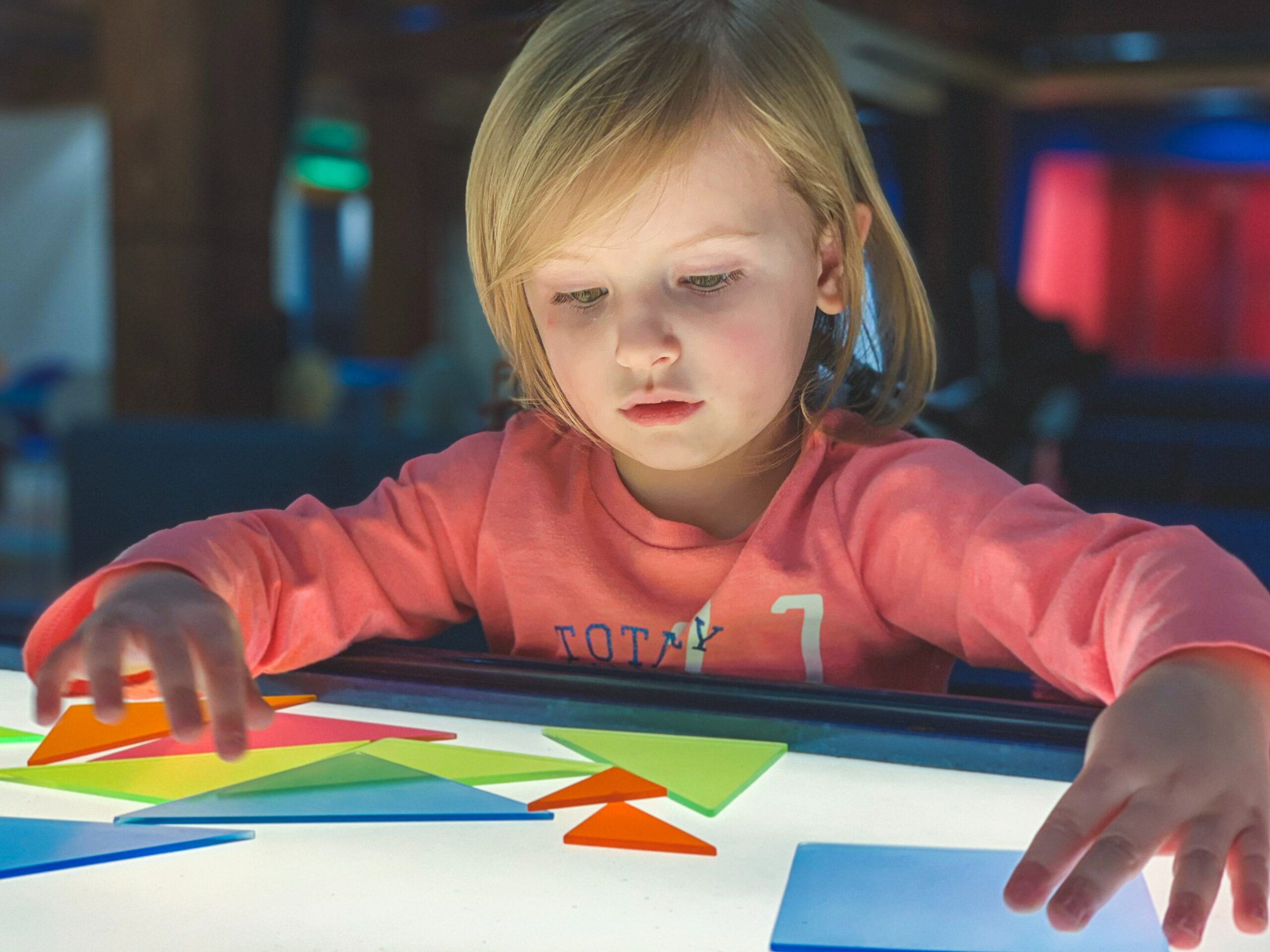Board games have long been a beloved form of entertainment, but did you know that they can also be powerful educational tools? Educational board games offer a unique and enjoyable way for children and even adults to learn and develop essential skills while having fun. These games go beyond mere rote memorization, fostering critical thinking, problem-solving, teamwork, and creativity.
By immersing players in interactive gameplay, educational board games make learning an exciting adventure. Whether you’re a parent seeking innovative ways to supplement your child’s education or an educator looking to enhance classroom lessons, the world of educational board games has something to offer for everyone.
How can educational board games make learning enjoyable?
Educational board games transform the traditional learning experience by infusing it with joy and excitement. They create a captivating environment where players actively participate in their education. Instead of monotonous textbooks or lectures, these games offer immersive storytelling, intriguing challenges, and intriguing puzzles that keep learners engaged and eager to explore.
Games like “The Magic School Bus: Science Explosion!” combine science concepts with adventure, encouraging young learners to delve into the wonders of the natural world. By making learning enjoyable, educational board games foster a love for knowledge and a thirst for exploration that lasts a lifetime.
What skills can children develop through educational board games?

Educational board games are not just about acquiring knowledge; they also nurture a wide range of essential skills. Problem-solving games like “Rush Hour” or “Code Master” challenge players to think critically and strategically as they find solutions to complex puzzles. These games teach children to analyze situations, think ahead, and make informed decisions.
Furthermore, collaborative board games like “Pandemic” or “Forbidden Island” encourage teamwork, communication, and cooperation. Players must work together to achieve common goals, fostering social skills and a sense of camaraderie.
Educational board games also promote creativity, as games like “Dixit” or “Story Cubes” require players to use their imagination to express ideas and create stories. By developing such a diverse range of skills, educational board games lay a strong foundation for lifelong learning and personal growth.
Are there educational board games for different age groups?
Indeed, there are educational board games designed to suit various age groups and learning levels. For younger children, games like “Candy Land” or “Sneaky, Snacky Squirrel” introduce basic concepts like colors, numbers, and matching. As children grow older, games like “Scrabble Junior” or “Math Bingo” provide a fun way to reinforce language and math skills.
For older students and adults, games like “Catan“ or “Ticket to Ride” introduce more complex concepts such as resource management, geography, and strategic planning. Additionally, there are educational board games tailored to specific subjects, such as “Timeline: Inventions” for history enthusiasts or “Bananagrams” for language learners. The wide range of educational board games ensures that learners of all ages can find games that match their interests and abilities.
| Game Name | Key Features | Skills Developed |
|---|---|---|
| Scrabble | Word-building, vocabulary expansion | Language skills, critical thinking |
| Catan | Resource management, strategic planning | Critical thinking, negotiation |
| Pandemic | Cooperative gameplay, problem-solving | Collaboration, decision-making |
| Ticket to Ride | Geography, route building | Spatial reasoning, planning |
| Codenames | Word association, deductive reasoning | Communication, teamwork |
| Chess | Strategic thinking, problem-solving | Critical thinking, logic |
| Math Fluxx | Math concepts, problem-solving | Numeracy skills, logical reasoning |
| Bananagrams | Word formation, speed | Vocabulary, language skills |
| Dixit | Storytelling, visual interpretation | Creativity, imagination |
| Robot Turtles | Programming basics, logical thinking | Coding, sequencing |
| Timeline | Historical events, chronological ordering | Historical knowledge, critical thinking |
| Forbidden Island | Cooperative gameplay, risk assessment | Teamwork, decision-making |
| The Magic School Bus: Science Explosion! | Science concepts, hands-on experiments | Scientific knowledge, inquiry skills |
| Rush Hour | Problem-solving, logical reasoning | Spatial awareness, critical thinking |
How do educational board games align with curriculum standards?
Many educational board games are designed in collaboration with educators and subject matter experts, ensuring that they align with curriculum standards and learning objectives. These games are carefully crafted to complement school curricula, making them valuable resources for teachers and parents alike. For example, games like “Math Fluxx” or “Grammar Safari” integrate mathematical or language concepts seamlessly into gameplay, playfully reinforcing classroom lessons.
By incorporating educational board games into learning environments, educators can reinforce academic concepts while keeping students engaged and motivated to learn. Parents can also use these games at home to support and supplement their children’s education, creating an enriching and enjoyable learning experience beyond the classroom.
Can educational board games improve critical thinking and problem-solving?
Absolutely! Educational board games are excellent tools for developing critical thinking and problem-solving skills. Games like “Stratego” or “Clue” challenge players to analyze information, make deductions, and strategize their moves. These games require players to think critically, anticipate their opponent’s actions, and formulate effective strategies to achieve their goals.
By engaging in these mentally stimulating activities, players enhance their analytical skills, logical reasoning, and decision-making abilities. Furthermore, educational board games often present players with open-ended problems or dilemmas, encouraging them to explore multiple solutions and think outside the box. This cultivates a mindset of creative problem-solving and adaptability, skills that are invaluable in both academic and real-world settings.
How do educational board games foster collaboration and teamwork?

Educational board games provide an ideal platform for fostering collaboration and teamwork. Cooperative games like “Pandemic” or “Hanabi” require players to work together toward a common objective, often against the game itself. Players must communicate, share information, and coordinate their actions to overcome challenges and achieve victory as a team.
These games promote effective communication, active listening, and the ability to work collectively, essential skills for any collaborative endeavor. Through collaborative board games, players learn the value of cooperation, empathy, and mutual support, creating a positive and inclusive gaming experience. These cooperative elements also make educational board games excellent tools for team-building activities, both in classrooms and social settings.
Are there educational board games that teach STEM subjects?
Yes, there is a wide array of educational board games that focus on STEM (Science, Technology, Engineering, and Mathematics) subjects. These games not only make learning STEM concepts enjoyable but also cultivate a passion for these disciplines. For instance, “Robot Turtles” introduces young children to programming and coding through a playful and interactive approach.
“Prime Climb” combines mathematics with strategy, providing an engaging way to explore number theory and arithmetic operations. “Cytosis” takes players on a cellular-level adventure, teaching biology concepts such as cell structure and metabolism. These STEM-focused educational board games encourage hands-on exploration, critical thinking, and problem-solving, empowering learners to embrace these subjects with enthusiasm and confidence.
What are some popular educational board games for language learning?
Language learning can be both exciting and engaging with the help of educational board games. Games like “Scrabble” or “Bananagrams” enhance vocabulary, spelling, and word-building skills, challenging players to form words from given letters. “Word on the Street” combines wordplay with strategic thinking, requiring players to come up with answers within a time limit.
For foreign language learning, games like “Language Guardians” or “Language Lingo” offer a fun way to practice vocabulary and grammar in different languages. These games provide an interactive and immersive language experience, promoting language retention and fluency. By incorporating language-focused board games into language learning routines, learners can reinforce their language skills while enjoying an entertaining and interactive learning process.
Can educational board games enhance creativity and imagination?

Certainly! Educational board games can be powerful tools for enhancing creativity and imagination. Games like “Dixit” or “Once Upon a Time” spark creativity by encouraging players to think outside the box and express themselves through storytelling or visual interpretation. These games invite players to let their imagination soar as they create narratives, connect ideas, and craft unique stories.
Additionally, open-ended building games like “LEGO Creationary” or “Rory’s Story Cubes” inspire creative thinking and problem-solving through hands-on exploration. By engaging in these imaginative activities, players learn to think creatively, embrace divergent thinking, and unleash their artistic potential. Educational board games provide a supportive and stimulating environment for fostering creativity and encouraging players to think beyond conventional boundaries.
How do educational board games promote cultural awareness and social skills?
Educational board games can serve as bridges to cultural understanding and promote social skills. Games like “Ticket to Ride” or “Around the World in 80 Days” take players on virtual journeys, introducing them to different cultures, landmarks, and historical events. By immersing players in diverse settings, these games foster an appreciation for cultural diversity and encourage curiosity about the world.
Furthermore, many educational board games require players to interact, negotiate, and collaborate with others, promoting the development of vital social skills. Games such as “The Resistance” or “Codenames” challenge players to communicate effectively, interpret non-verbal cues, and build trust among team members. These social interactions nurture empathy, respect, and cooperation, preparing players for meaningful social relationships both within and beyond the gaming context.
What are some educational board games that focus on history and geography?
History and geography enthusiasts can delve into captivating worlds through educational board games specifically designed to explore these subjects. Games like “Timeline” or “7 Wonders” transport players to different historical periods, challenging them to sequence events or construct civilizations based on historical accuracy.
“Ticket to Ride” takes players on a train adventure, exploring geography and mapping skills as they connect cities across continents. These games blend entertainment with educational content, enabling players to expand their knowledge of historical events, cultures, and geographical locations. Educational board games focused on history and geography ignite curiosity, spark a fascination for the world’s past and present, and inspire players to become lifelong learners of these subjects.
In Conclusion: Embrace the Power of Educational Board Games
Educational board games offer a captivating and effective means of learning through play and engagement. By harnessing the power of interactive gameplay, these games foster critical thinking, problem-solving, collaboration, creativity, and other vital skills. From early childhood to adulthood, educational board games cater to diverse age groups and subjects, making learning enjoyable and accessible for all.
By integrating educational board games into classrooms and homes, we can create enriching learning experiences that go beyond traditional teaching methods. So, let’s embrace the excitement and value of educational board games and embark on a journey of discovery, growth, and endless fun!